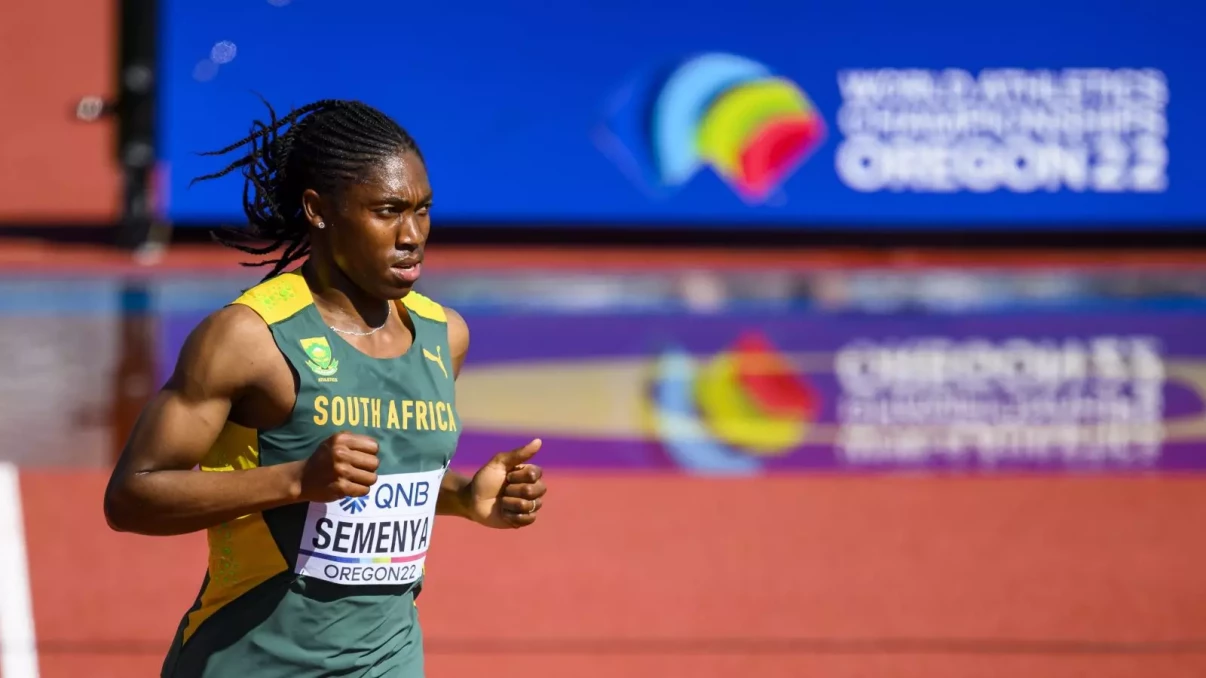Caster Semenya criticizes Olympic officials over gender rule inconsistencies
 By
SABC Sport
By
SABC Sport
6th August 2024

Caster Semenya has expressed frustration with the inconsistent gender rules at the Olympics, commenting on the controversy surrounding two boxers who allegedly failed sex tests.
Semenya, who has differences in sex development (DSD), won Olympic gold in the women's 800 meters in both 2012 and 2016. However, under current World Athletics regulations, she would now need to lower her testosterone levels to compete in the same event.
Addressing the issues faced by Imane Khelif and Lin Yu-ting for the first time, Semenya pointed fingers at the International Olympic Committee (IOC). "What happened at the Olympics now is not what happened in my space," Semenya said, referring to the IOC accepting Khelif and Lin because their passports state 'woman.' "Each organization has its own policyâ”boxing has theirs and athletics has its own."
The inclusion of DSD and transgender athletes has been a contentious issue for the IOC. The IOC now leaves it to individual sports to set their rules based on "robust and peer-reviewed science," excluding competitors when there is a proven unfair advantage or safety risk.
Semenya argues for a universal rule for all sports. She empathized with Algerian boxer Khelif, who is now guaranteed a medal in Paris. "Imane is a great boxer, and people criticize when someone is successful," Semenya told Sportsboom.com. "But the IOC's policy and constitution should not contradict each other. Sport is for everyone, and the constitution opposes discrimination. Allowing women to be disgraced is confusing."
Semenya, who refuses to undergo treatments required to compete, has been in legal battles with World Athletics since 2018. NHS data indicates that typical testosterone levels range between 20 and 30 in young, healthy men, while women have a reference range of 0.7 to 2.8.
In November 2021, the IOC discarded its 2015 uniform policy, delegating rule-setting to individual governing bodies. "It's about principles of life," Semenya said. "I've moved into coaching and stopped competing seriously in 2022. I want to spend more time with my children."
As the controversy continues in Paris, the International Boxing Association (IBA), which disqualified the boxers last year, has released its correspondence with the IOC. An IBA letter from June last year urged the IOC to ensure the safety of competing athletes.
"This situation highlights the importance of protecting safe sport and the integrity of sport," the IBA letter states. "We trust you will give this matter the utmost attention it deserves."
The IBA has also published a timeline of events, refuting claims that it has exacerbated the row in its ongoing conflict with the IOC. The first letter alerting the IOC to the failed tests was sent on June 5 last year, and the IOC confirmed receipt 11 days later. After reports of test failures, the Italian Boxing Federation sent an email inquiry to the IBA asking for details, prompting the IBA to hold a press conference on August 5, 2024, in Paris.
The IBA has faced backlash after its president, Umar Kremlev, called Khelif and Lin "men." "We don't verify what they have between their legs," Kremlev said, asserting that the boxers' DNA showed male characteristics.
Khelif has stated that the controversy has had "massive effects" and called for restraint. "I urge people to uphold the Olympic principles and refrain from bullying athletes," she said.
However, the IBA remains firm, with Dr. Gabriele Martelli, president of the IBA Coaches Committee, warning of potential danger. "Our sport is dangerous. If there is an unfair advantage, people can die," he said.
IOC president Thomas Bach and spokesman Mark Adams have criticized the IBA for allegedly inflaming the controversy. The IOC and IBA have been at odds since 2019, when the IBA was suspended as the governing body for Olympic boxing.








